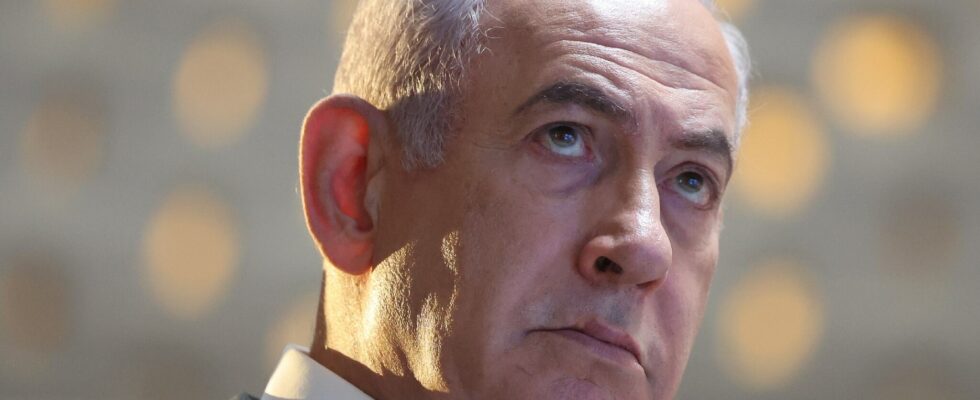The official funeral of the leader of the Palestinian Islamist movement Hamas, Ismail Haniyeh, killed in Tehran in a strike attributed to Israel, began early this Thursday, August 1 in the center of the capital. This assassination, as well as an Israeli strike that killed the military leader of the Lebanese Hezbollah, Fouad Chokr, near Beirut on Tuesday, raises fears of contagion of the war that has been raging for almost ten months in the Gaza Strip between Israel, sworn enemy of Iran, and Hamas, supported by Tehran.
Key facts:
⇒ “Severe blows dealt to our enemies” in recent days, says Netanyahu
⇒ Funeral of Hamas leader Ismail Haniyeh begins in Tehran
⇒ Iran promises “severe punishment”
Funeral of Hamas leader Ismail Haniyeh begins in Tehran
The Islamic Republic’s Supreme Leader Ayatollah Ali Khamenei will preside over a prayer ceremony in memory of Ismail Haniyeh, whom he hailed as “an outstanding fighter of the Palestinian resistance”, before his burial on Friday in Qatar where he lived in exile.
A mourning crowd, carrying portraits of the Hamas leader and Palestinian flags, gathered at Tehran University in the center, an AFP correspondent observed.
“Severe blows dealt to our enemies” in recent days, says Netanyahu
Israeli Prime Minister Benjamin Netanyahu said Wednesday night that Israel had dealt “severe blows” to its “enemies” in recent days, explicitly mentioning the killing of Fouad Shokr but not commenting directly on the attack in Tehran.
UN Secretary-General Antonio Guterres on Wednesday expressed alarm at the attacks in Beirut and Tehran, which “represent a dangerous escalation,” his spokesman said.
Like US Secretary of State Antony Blinken, he called for continued “efforts” to broker a ceasefire in Gaza, at a time when Qatar, the main mediator, is considering whether to continue mediation. The United States, Israel’s main ally, said the strikes in Tehran and Beirut were “not helping” to reduce regional tensions, while saying there was no sign of an “imminent” escalation.
Iran vows ‘severe punishment’
Iran’s Revolutionary Guards announced Wednesday the death of Ismail Haniyeh, killed along with a bodyguard in the residence where he was staying in Tehran after attending the inauguration ceremony of reformist President Massoud Pezeshkian. According to Iranian media, he “was in one of the special residences for war veterans in northern Tehran when he was killed by an aerial projectile” at around 02:00 local time (22:30 GMT Tuesday).
The Supreme Leader promised “severe punishment” after the assassination. “We consider it our duty to avenge his blood shed on the territory of the Islamic Republic,” he said.
Massoud Pezeshkian said that “the Zionists (Israel) would soon see the consequences of their cowardly and terrorist act.” Iranian Army Chief of Staff Mohammad Bagheri said the assassination would “grow the unity of the Islamic resistance front.” Iran’s permanent mission to the UN in New York also warned of “special operations” in response to the assassination, which “will cause deep regret in its perpetrator,” in a message on X.
The elimination of Hezbollah’s military leader
Hours before the Tehran attack, the Israeli army announced that it had “eliminated” Fouad Chokr in a strike near Beirut. The Hezbollah military leader is accused by Israel of being responsible for a strike that killed 12 children and teenagers on Saturday in Majdal Shams, on the occupied Syrian Golan.
A source close to Hezbollah confirmed on Wednesday that the body of Fouad Chokr had been found under the rubble of the targeted building in the southern suburbs of Beirut, a stronghold of the pro-Iranian movement.
Fear of a conflagration
Many members of the UN Security Council expressed concern on Wednesday about the risks of escalation in the Middle East, citing a critical situation following the death in Tehran of the leader of Hamas.
Hours after Ismail Haniyeh’s death, the Council met in an emergency session at the request of Iran, supported by Russia, China and Algeria. The Council “must take immediate steps to hold Israel accountable for this act of aggression, including considering sanctions and other measures necessary to prevent further violations and to demonstrate that Israel’s malign activities will not be tolerated by the international community,” Iranian Ambassador Amir Saeid Iravani said, reaffirming Iran’s right to “self-defense.” Several Council members, including China, Russia and Algeria, directly condemned the assassination.
